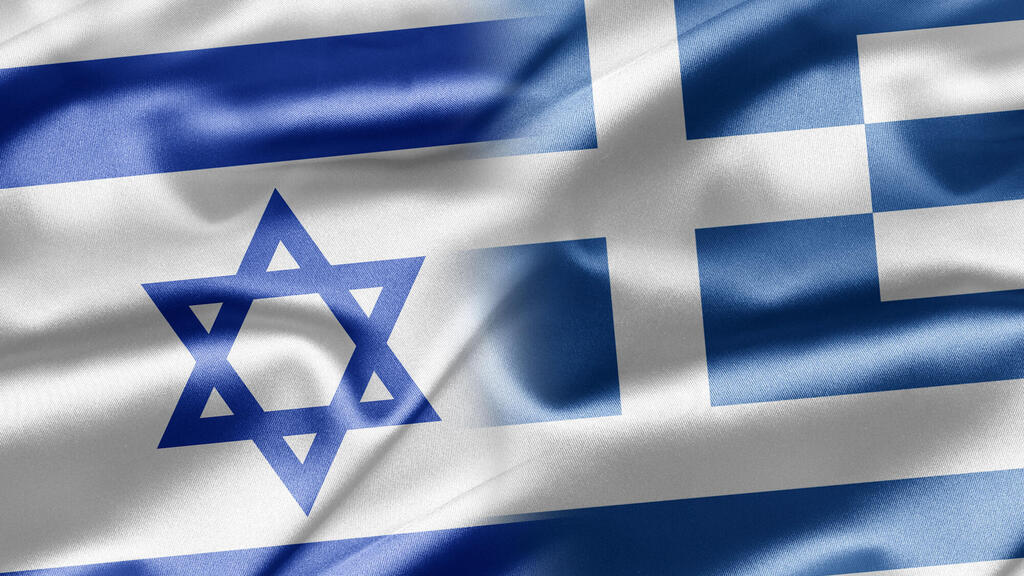
Greece’s emerging startup scene is ideal for friend-finding Israel
“2024 is going to be a milestone for the startup market in Greece,” said Israel-Greece Chamber of Commerce CEO Cobi Bitton.
Greece may be known as a country famed for its nautical industry, but those in the startup scene might be privy to looking its way for trade and partnerships. According to the Israel-Greece Chamber of Commerce, the country has been bouncing back from its economic troubles: it is ready to collaborate with successful hubs such as Startup Nation at a time when Israel is undergoing its own recovery from the Hamas attack on October 7.
The Israeli Bureau of Statistics shows that Israeli exports to Greece rose to $670.3 million in 2022, up from $442.6 million in 2019, while imports from Greece rose from $321.2 million in 2019 to $587 million in 2022. The leading products exported from Israel to Greece were Refined Petroleum, Scrap Copper, and Scrap Iron. Between 1995-2022, exports of Israel to Greece have increased at an annualized rate of 4.92%, from $157 million to $573 million. In the same period, the exports of Greece to Israel increased by 6.87% from $156 million to $939 million with main products including Refined Petroleum, Insulated Wire, and Hot-Rolled Iron Bars.
Yet today the two countries can look for technology as a way to continue business as both regions recover from their own challenges. According to a study provided by the Chamber of Commerce and supported by local VCs and banks, “the estimated value of the Greek startup ecosystem has been positioned at $8.2 billion in 2022, marking Greece as a leader in venture funding within the South Eastern European region.” The most notable startup location is unsurprisingly Athens, followed by Thessaloniki. In 2023 more than 70 companies were funded with more than €485 million ($526 million) and that number is expected to rise.
“2024 is going to be a milestone for the startup market in Greece,” says CEO Cobi Bitton. “And I think that there is much on our part to support such kind of initiatives and to be part of it because if we will not be there, others will be there.”
The Israel-Greece Chamber of Commerce is a non-profit organization helping reinforce and promote the economic and commercial relations existing between both countries in trade, investments, and research and development. Today its focus is in the tech space where industries having a boost include real estate and hospitality, traveltech, gaming, e-commerce, or agtech, and facilitates business trips to either location. Last month it launched the high-tech Israel-Greece forum, a platform for creating business opportunities, investments, and partnerships between companies from both countries.
Bitton confirms that the Ministry of Food and Rural Development has enquired about cooperation to establish an innovation hub in the agricultural sphere in Greece supported by the government. It is a sign that the country is looking to expand its footprint outside of traditional industries and look at more tech-facing opportunities.
“If you travel and visit Athens, which is not only the capital of Greece but also its financial and commercial capital, you will see what is going on now compared to a few years before,” he added, commenting on how the country is recovering from its economic crisis in recent years. “I saw the differences in the atmosphere, the attitude of the population, and the business sector… It's much easier to do business in Greece today compared to previous years.”
If Greece and Israel are planning to continue their growing relationship, they do so in turbulent times. Greece is still technically recovering from the crisis that threw its economy and young workforce into chaos, and Israel is fighting a battle on the ground and in cyberspace with Hamas, which has knocked confidence in overseas VCs looking to invest in Startup Nation.
Bitton says that these difficult times have put somewhat of a strain on Greece, which needs to balance its messaging during “a very sensitive and crucial era” amid the war with Hamas. Last month pro-Palestinian protestors disrupted Greece’s Independence Day military parade due to its public support of Israel, but he maintains the actions of a small number of “anarchists” don’t represent the leading position of the country. “Greece is part of the EU so they have to act under EU resolutions, but for Israelis, it's one of the very few places around the world today to feel safe and who are welcomed,” he said.
The thirst for tech and talent in the sectors can be quenched by those looking for employment both in Israel and Greece. According to Dana Lavi, CEO of Nisha company from the Human Resources Division of Danal Group, the two countries can both overcome their challenges. “Greece looks at the Startup Nation as its inspiration. And Israel wants to preserve its high-tech industry, open a new market, and find solutions for technological workers. So I think that this collaboration will create a lot of good things for both countries and companies from both countries,” she said.
All in all, the Greece-Israel Human capital from both countries can continue to support each other as each country bounces back from hardship. Economic and diplomatic challenges continue, but a future of collaboration will too. “This is our goal and I think we can do it together,” Lavi concluded.















